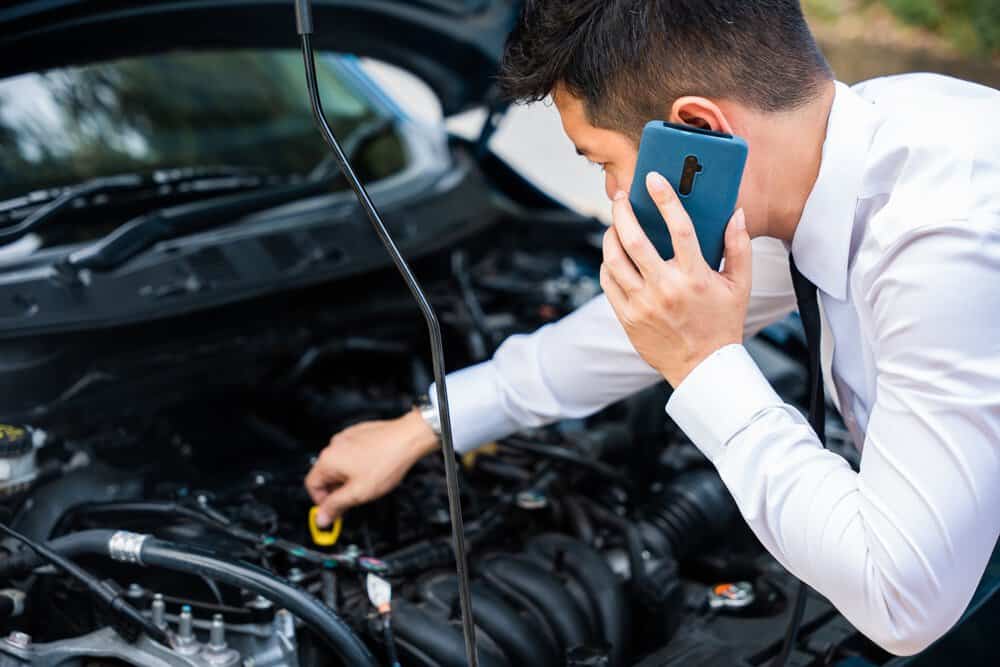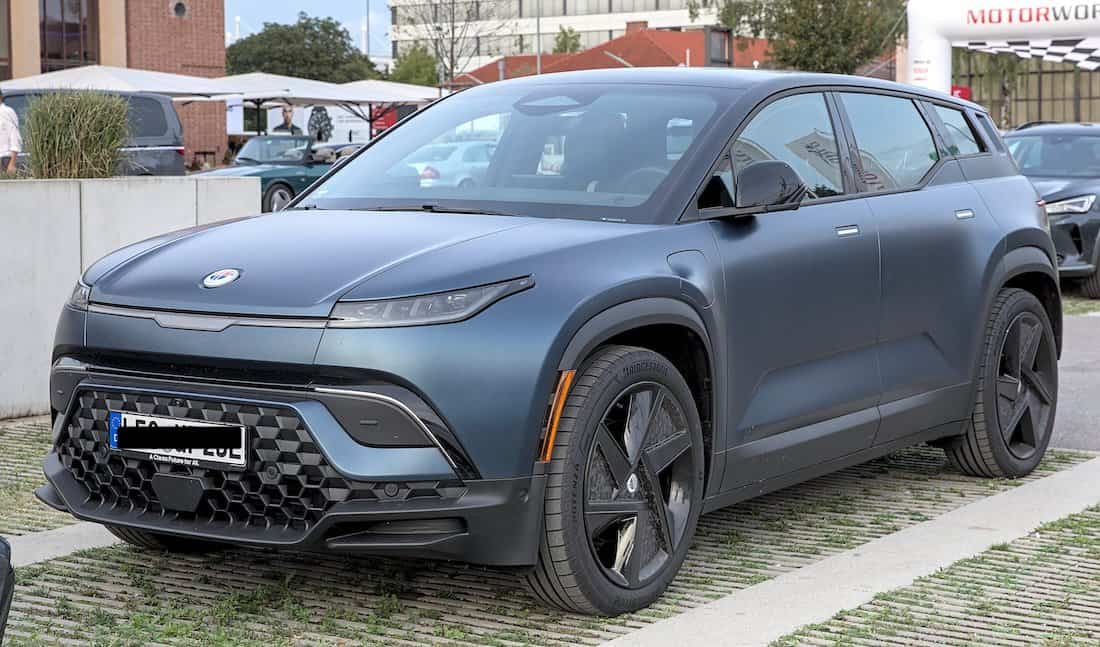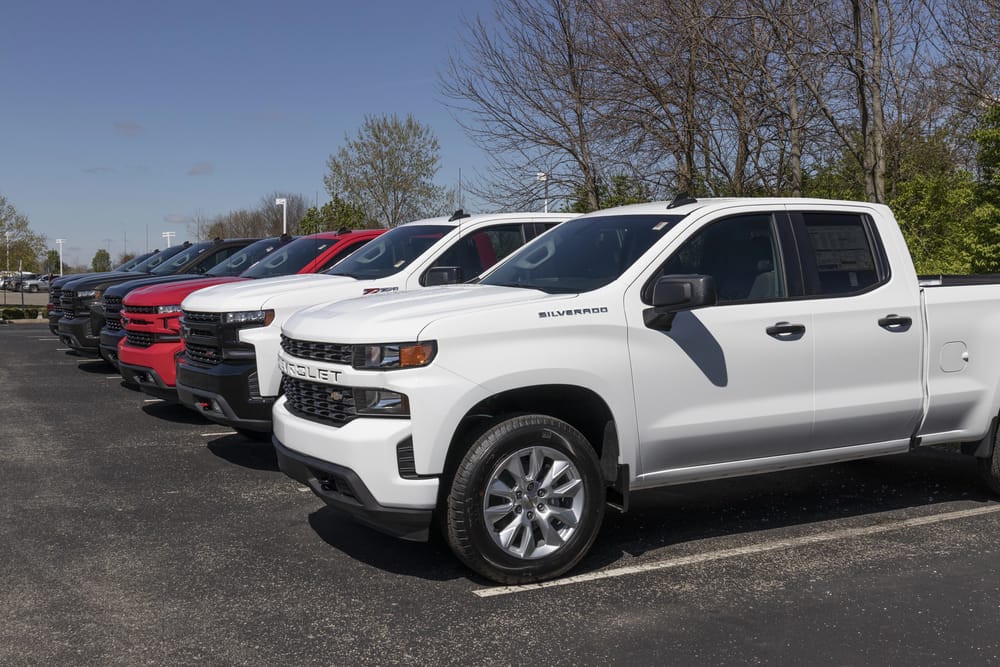Lemon laws exist to protect consumers from purchasing defective vehicles that may significantly impact functionality, value, and safety. In California, these laws are considered some of the most protective and comprehensive in the country. They cover new vehicles and certain vehicles sold with a new manufacturer’s warranty such as demonstrator and dealer-owned vehicles. This provides essential information about California’s lemon laws, helping to ensure that consumers know their rights and can act accordingly.
California’s lemon law, officially called the Song-Beverly Consumer Warranty Act, applies to used vehicles in specific and limited circumstances. The law’s strongest protections, including the refund-or-replace remedy, generally apply only to new vehicles and certain vehicles like demonstrators or dealer-owned vehicles where a new manufacturer’s warranty is issued at the time of sale.
It is crucial to understand that the statute does not cover used vehicles sold “as is.” Used vehicles with an unexpired manufacturer’s warranty from a previous sale may still have other legal protections under the California Uniform Commercial Code, but generally do not qualify for the lemon law’s refund-or-replace remedy. Therefore, buyers should pay close attention to the warranty status and type of warranty being offered with the sale.
Understanding your legal rights when purchasing a used vehicle is crucial. While the lemon law’s strongest protections typically apply only to new vehicles and certain specifically defined situations, other consumer protection laws may provide remedies for issues with used vehicles. Exploring the specifics of these laws and how they relate to individual circumstances is paramount for any car buyer in California.
Key Requirements for Lemon Law Protection
California’s Lemon Law provides its strongest protections to buyers of new vehicles and certain vehicles sold with new manufacturer warranties. This law ensures that vehicles are safe, reliable, and defect-free. The law’s refund-or-replace remedy generally applies to new vehicles, demonstrator vehicles, and dealer-owned vehicles sold with a new manufacturer’s warranty issued at the time of sale.
A vehicle may qualify as a “lemon” under California law if it has a substantial defect that impairs its use, value, or safety. This means the problem is more than a minor inconvenience – the defect must negatively impact the car’s basic functions or compromise its safety.
To qualify for the law’s refund-or-replace remedy, a vehicle must meet the legal definition of a “new motor vehicle,” which includes new vehicles and certain vehicles like demonstrators sold with a new manufacturer’s warranty issued at the time of sale. If a defect is discovered during the warranty period, the consumer should notify the manufacturer or dealer immediately. They are then given a reasonable number of attempts to repair the defect.
For qualifying vehicles, if the defect cannot be fixed after a reasonable number of repair attempts or time out of service, the manufacturer must either replace the vehicle or provide a refund, with the choice typically left to the consumer. California law generally considers four repair attempts or thirty days out of service to be reasonable, though fewer attempts may suffice for serious safety defects. For used vehicles that don’t qualify as “new motor vehicles” under the law, other legal remedies may be available under different consumer protection laws.
It is essential to understand that the strongest lemon law protections, including the refund-or-replace remedy, apply primarily to new vehicles and certain specifically defined situations where a new warranty is issued with the sale. Used vehicles with remaining coverage from a previously issued manufacturer’s warranty generally do not qualify for these enhanced remedies, though other legal protections may apply.
In conclusion, while California’s Lemon Law provides significant protections for new vehicle purchases, its application to used vehicles is more limited than previously understood. By ensuring that vehicles are safe, reliable, and free from significant defects, this law helps to maintain trust and confidence in the car market.
What Vehicles Qualify as “New Motor Vehicles”
To qualify for California’s lemon law refund-or-replace remedy, a vehicle must meet the legal definition of a “new motor vehicle.” This includes:
- New vehicles bought for personal or business use (for businesses with no more than five vehicles registered in California)
- Demonstrator vehicles
- Dealer-owned vehicles
- Other vehicles sold with a new manufacturer’s warranty issued at the time of sale
Certified pre-owned vehicles generally do not qualify for the lemon law’s refund-or-replace remedy unless the manufacturer or its authorized dealer issues a new warranty with the sale. The mere existence of remaining coverage from a previously issued warranty does not qualify the vehicle for these enhanced remedies.
Understanding Defects
Under California’s Lemon Law, it’s crucial to understand the two main types of defects: safety and non-safety. Both can impact a vehicle’s performance and value, but safety defects pose a more immediate risk to drivers and passengers.
Safety Defects
Safety defects are those that have the potential to cause serious bodily injury or death if not addressed. These defects may include issues with the following components:
- Braking systems
- Steering mechanisms
- Seatbelts and airbags
- Fuel systems
Some examples of safety defects may include:
- Faulty airbags that fail to deploy in a crash
- Accelerator pedals that stick, causing unintentional acceleration
- Brake failure due to poorly manufactured parts
It’s essential to promptly address these defects, as they can cause hazardous situations on the road.
Non-Safety Defects
On the other hand, non-safety defects do not necessarily pose an immediate risk to one’s safety but can significantly affect a vehicle’s performance, value, and usability. Examples of non-safety defects may include:
- Problems with the electrical system
- Defective paint or bodywork
- Issues with the air conditioning or heating systems
- Malfunctioning power windows or doors
While these defects may not directly impact a driver’s safety, they can lead to inconvenient and irritating problems for the vehicle owner, potentially resulting in costly repairs.
Understanding the distinction between safety and non-safety defects is important regardless of whether your vehicle qualifies for the lemon law’s enhanced remedies. Assessing these defects’ severity and potential consequences helps determine the appropriate course of action to ensure safe and reliable transportation.
Manufacturer’s Obligations for Qualifying Vehicles
Required Repair Opportunities
For vehicles that qualify under the lemon law, manufacturers must attempt to repair substantial defects. The exact number of attempts may vary based on the severity of the defect and if the defect poses a risk to the vehicle’s safety, but case law suggests:
- Two attempts for life-threatening defects
- Four attempts for less severe defects
Buyback or Replacement Requirements
For qualifying vehicles under the lemon law, if the manufacturer cannot repair the defect after a reasonable number of attempts, they must either:
- Replace the vehicle with a comparable model, or
- Refund the purchase price to the buyer minus a reasonable usage fee.
The choice between replacement or refund depends on the buyer’s preference. The usage fee is determined based on the vehicle’s mileage when the defect is first reported.
Remember that these specific refund-or-replace remedies only apply to vehicles that meet the legal definition of a “new motor vehicle,” including new cars and certain vehicles sold with new manufacturer warranties issued at the time of sale.
Available Remedies Under the Lemon Law
California’s lemon law provides specific remedies for qualifying vehicles with unresolved defects. Two primary options are compensation and repurchase.
Compensation for Related Expenses
For vehicles that qualify under the lemon law, compensation may include:
- Repair costs
- Rental car fees
- Towing fees
Vehicle Buyback Process
For vehicles that qualify as “new motor vehicles” under the law, if the manufacturer cannot repair substantial defects after a reasonable number of attempts, they must repurchase or replace the vehicle. Factors that determine repurchase eligibility include:
- Time spent in the repair facility
- The severity of the defect
- The number of repair attempts
When repurchasing, the manufacturer may deduct a reasonable usage fee based on the car’s mileage before the first repair attempt. The owner is typically entitled to the full purchase price, including taxes, registration, and fees. Additionally, any expenses related to the issue, such as towing and rental car costs, may be reimbursed.
While these enhanced remedies are available for qualifying vehicles, consumers who purchase used vehicles with existing warranties may still have other legal remedies available under the California Uniform Commercial Code and other consumer protection laws.
Arbitration Process
For qualifying lemon law claims, consumers and manufacturers can settle their disagreements without going to court through arbitration.
To initiate the arbitration process, the consumer must first notify the manufacturer in writing of any defects or issues they encounter with their vehicle. The manufacturer then has a limited time to rectify the problems before arbitration begins. During this time, an authorized representative from both parties is contacted to resolve the matter amicably.
The arbitration decision may consist of one or more of the following outcomes. For qualifying vehicles:
- Repurchase of the vehicle
- Replacement with a similar vehicle
- Compensation for the diminished value of the car due to its defects
- Repair costs reimbursement
- Other monetary compensations
Both parties are informed of the arbitrator’s decision, which is legally binding and must be carried out. There is the possibility of appealing the arbitration outcome within a specified time limit, but it may be subject to additional procedures or legal fees.
Remember that the availability of specific remedies through arbitration depends on whether your vehicle qualifies as a “new motor vehicle” under the law.
Understanding Different Types of Warranties
Implied Warranty of Merchantability
The Implied Warranty of Merchantability is a legal protection for consumers that ensures a used vehicle meets certain basic and reasonable expectations of quality and functionality. This implied warranty applies to all used car sales in California unless the sale is made “as-is.”
Under the Implied Warranty of Merchantability, the dealer guarantees that the vehicle:
- Is safe to operate on the road
- Can perform the vehicle’s ordinary purposes, such as transportation
- Has no significant defects or malfunctions
The duration of the implied warranty varies depending on the vehicle’s mileage at the time of sale. For cars with less than 60,000 miles, the implied warranty lasts for 30 days. For cars with 60,000 – 119,999 miles, the warranty lasts for 15 days; for 120,000 miles or more, the warranty lasts 5 days.
Dealer Warranty
In addition to the Implied Warranty of Merchantability, the dealer may offer a separate warranty on the used vehicle. Such warranties can be limited or comprehensive, depending on the coverage provided by the dealer. A Dealer Warranty generally covers specific parts or systems in the vehicle and can vary in terms of the duration and the conditions under which it applies.
Some common elements of a dealer warranty include:
- Specified coverage period (e.g., 3 months, 6 months, or longer)
- Listed components or systems covered by the warranty
- Details of deductible, if applicable
- Any limitations or exclusions
It is important for the buyer to carefully review and understand the terms of any dealer-provided warranty before agreeing to the purchase.
Manufacturer’s Warranty
While a used car may have remaining coverage from the original manufacturer’s warranty, it’s important to understand that this alone does not qualify the vehicle for the lemon law’s refund-or-replace remedy. In Rodriguez v. FCA US, LLC (2024), the California Supreme Court clarified that a used vehicle must receive a new manufacturer’s warranty at the time of sale to qualify for these enhanced protections.
Though manufacturer warranties often transfer to subsequent owners, these transferred warranties provide different legal protections than new warranties issued at the time of sale. The specific terms and conditions of coverage can vary among manufacturers; therefore, the buyer needs to review the warranty documentation and understand the scope of coverage and any applicable limitations.
Key elements of a Manufacturer’s Warranty can include:
- Coverage period (specified in years or mileage)
- Coverage details (e.g., powertrain, emissions, corrosion)
- Limitations (e.g., exclusions, transferability)
Working with Lemon Law Attorneys
California lemon law attorneys assist clients in determining whether their vehicles qualify for the law’s enhanced remedies and, if so, pursuing their claims. These legal experts have extensive knowledge and experience with California’s lemon law statutes and can help navigate the complexities of the legal process.
A lemon law buyback occurs when a manufacturer repurchases a vehicle deemed a “lemon.” This typically happens when a qualifying vehicle has been subject to repeated repairs for the same issue or has been out of service for an extended period due to defects. An experienced attorney can help determine whether your vehicle qualifies as a “new motor vehicle” under the law and guide you through available legal remedies.
If your vehicle qualifies under the lemon law, an attorney can help you file a claim against the manufacturer. The attorney will assess the case’s merits and gather evidence supporting the claim. This may include repair orders, invoices, and documentation of the vehicle’s history of issues. They will also ensure compliance with the California lemon law’s requirements, such as the timeframe to file a claim (generally four years from when the defect was or should have been discovered) and the number of repair attempts made.
Even if your vehicle doesn’t qualify for the lemon law’s enhanced remedies, an attorney can advise you about other legal protections that may be available under the California Uniform Commercial Code or other consumer protection laws.
Other Laws Protecting Car Buyers
In addition to the California lemon law, federal laws provide consumers with protection when purchasing a used vehicle. The Federal Trade Commission enforces the Used Car Rule, which requires dealers to provide specific information about the vehicle’s history and condition through a Buyers Guide.
The Buyers Guide must disclose information such as:
- Whether the vehicle is being sold “as is” or with a warranty
- What percentage of the repair costs will the dealer cover under the warranty
- A list of major mechanical and electrical systems in the car, including potential problems to look out for
- Recommendations to have the vehicle inspected by an independent mechanic before purchasing
Additionally, the Magnuson-Moss Warranty Act is a federal law that protects consumers who purchase vehicles with written warranties. This act ensures that warranties are transparent and consumers understand what they agree to when signing a purchase agreement.
California also has specific consumer protection laws for used cars. The California Car Buyers Bill of Rights requires dealers to offer customers an option to purchase a 2-day return policy for used vehicles under certain conditions. This policy allows a consumer to return the vehicle for any reason within 2 days of purchase if it meets specific criteria. The law also prohibits dealers from selling a used vehicle without clearly disclosing the vehicle’s history, including any previous damage or rebuilds.
While California’s lemon law provides strong protections for new vehicles, used car buyers should understand that they may need to rely on other consumer protection laws if their vehicle doesn’t qualify as a “new motor vehicle” under the lemon law. These might include:
- The California Uniform Commercial Code
- The federal Magnuson-Moss Warranty Act
- California’s Consumer Legal Remedies Act
- The Song-Beverly Act’s provisions specifically addressing used goods
While the lemon law’s strongest remedies are limited to qualifying “new motor vehicles,” numerous other state and federal laws protect used car buyers. These laws aim to increase transparency and ensure buyers know the vehicle’s history, warranty information, and rights after purchase.



